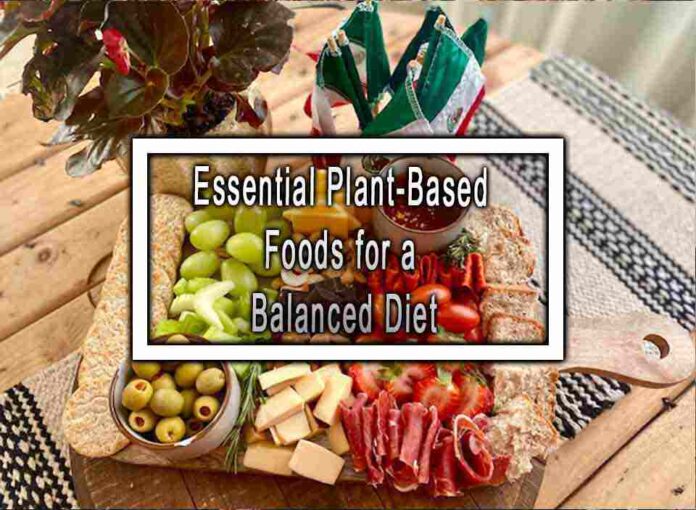A plant-based diet can provide a wide range of essential nutrients when well-planned. Here are some essential plant-based foods to include for a balanced diet:
1. Legumes
Legumes, such as lentils, chickpeas, black beans, and soybeans, are excellent sources of plant-based protein, fiber, and essential minerals. They can be used in soups, stews, salads, and various other dishes.
2. Whole Grains
Include whole grains like brown rice, quinoa, oats, barley, and whole wheat in your diet. These provide complex carbohydrates, fiber, and a range of vitamins and minerals. They can be the foundation of meals, used in salads, or as a side dish.
3. Leafy Greens
Dark, leafy greens like spinach, kale, Swiss chard, and collard greens are packed with vitamins, minerals, and antioxidants. They are low in calories and high in fiber, making them a nutrient-dense addition to salads, stir-fries, and smoothies.
4. Nuts and Seeds
Almonds, walnuts, chia seeds, flaxseeds, and hemp seeds are rich in healthy fats, protein, and essential nutrients like omega-3 fatty acids. They make for great snacks, toppings for dishes, or ingredients in homemade energy bars.

5. Fruits and Vegetables
Include a variety of fruits and vegetables in your diet to ensure you get a wide range of vitamins, minerals, and antioxidants. Choose a colorful array of fruits and vegetables, such as berries, citrus fruits, broccoli, bell peppers, and sweet potatoes.
6. Tofu and Tempeh
Tofu and tempeh are plant-based sources of protein made from soybeans. They are versatile ingredients that can be used in stir-fries, curries, sandwiches, and more. They provide protein, iron, and calcium.
7. Plant-Based Oils
Opt for healthy plant-based oils like olive oil, avocado oil, and coconut oil for cooking and dressings. These oils provide essential fatty acids and can be part of a balanced diet when used in moderation.
8. Plant-Based Milk Alternatives
Substitute dairy milk with plant-based alternatives like almond milk, soy milk, oat milk, or coconut milk. Choose fortified options to ensure you get essential nutrients like calcium and vitamin D.
9. Seaweed
Seaweed, such as nori, kelp, and dulse, is a good source of iodine, iron, and other minerals. It can be used in soups, salads, or as a wrap for sushi rolls.
10. Plant-Based Protein Sources
Include other plant-based protein sources like seitan, edamame, quinoa, and nutritional yeast in your diet to diversify your nutrient intake.
Remember, it’s important to ensure you get a variety of plant-based foods to meet your nutritional needs. Consider consulting a registered dietitian or nutritionist who specializes in plant-based diets to create a personalized meal plan that suits your specific requirements.










